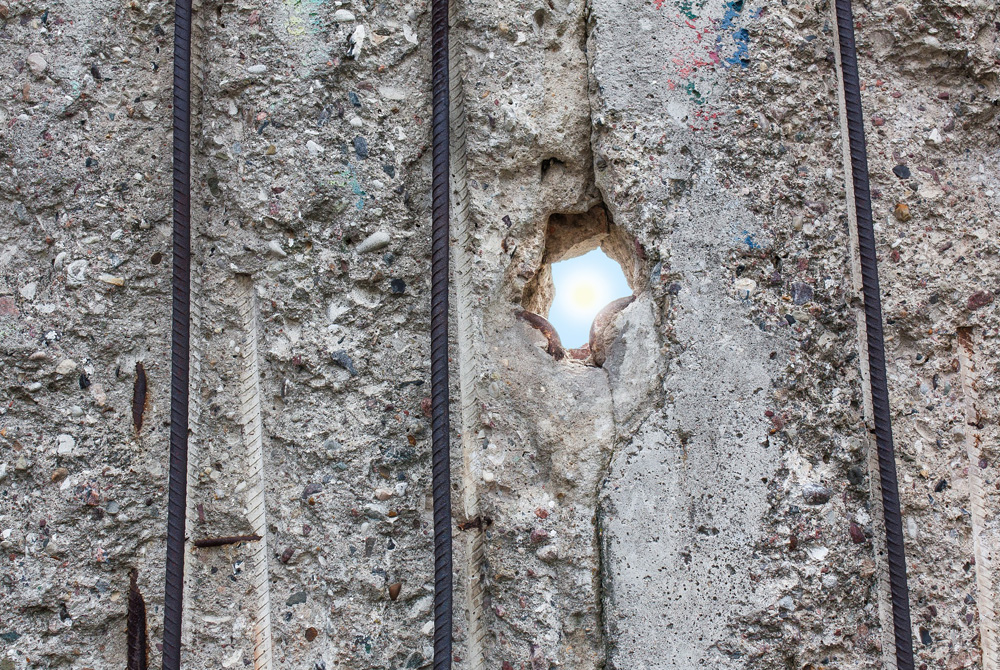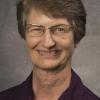
(Pixabay/flotty)
Remembering the fall of the Berlin Wall over 30 years ago stirred some vivid memories in me.
While touring Europe with my mother in 1970, we visited my congregation's general headquarters in Rome. When I told our general superior that the tour would visit Cologne, she encouraged me to consider a visit to our sisters in Berlin.
As a 30-year-old School Sister of Notre Dame, I had little experience of the protocol expected when visiting our sisters around the world, so I simply booked a flight on a Pan Am flying to Berlin from Cologne. As we took off the pilot announced that we would be flying just 3,000 feet above the ground since we were flying into communist Germany, and had to be seen by ground forces at all times.
Berlin was divided between East and West and was a small island of freedom in an area under communist control. I arrived with no community identification at the convent in Marienfelde. I did not speak German and said in my American English that I was a School Sister of Notre Dame from St. Louis, visiting in Rome, and that Mother Georgianne Segner suggested I visit them.
The "portress" was surprised by such a visitor, totally unexpected, and so asked me to sit in a "parlor." I waited for a time before two sisters came in and greeted me somewhat coldly. Then they proceeded to ask me about the history of our congregation. As I responded correctly their demeanor softened and eventually they welcomed me to stay with them for the weekend.
I learned later that the previous week the sisters had hired a new teacher for the high school, only to learn later that he was a Communist, so I'm sure they wondered about my true intentions.
As we became acquainted they offered to take me to East Berlin, which meant passing under the wall, via subway from the West to the eastern part of the city. At the time we had about 100 School Sisters of Notre Dame in the West, and about 200 living under restrictive conditions in the German Democratic Republic (East Germany).
The next day as I prepared to visit our sisters in the East I was instructed not to say anything about visiting the sisters when I went through passport control, but simply to say I was visiting the art museum in East Berlin.
A German School Sister would be my guide and companion. She had said that sometimes the Communists made it harder for Berliners to get through the Wall so I should not worry if she was not immediately available when I was finished since we went into separate buildings for our border crossing "processing."
We got on the subway in West Berlin where people were chatting, and passed walls advertising various events and stores available in West Berlin. About midway a sudden hush came over the travelers and the ads on the subway walls were replaced with a grayness, making me realize we had entered communist space where free enterprise was forbidden.
After we arrived and left the subway I noticed the drab, colorless buildings in East Berlin, bringing on a wave of sadness that creeps into my heart even as I write this almost 50 years later.
My companion led me to a building where I entered and saw guards walking in "goose-steps" around a room, with Beethoven playing in the background. Many people were sitting at tables filling out documents. Almost no one was speaking.
I stood in line behind a woman with a little 6-year-old, who had just returned from the U.S. The woman was a West Berliner who had married an American and they had recently been to Disneyland. The woman was visiting her mother who lived in East Berlin.
As I asked the child about her Disneyland memories she was excited to tell me all she had seen, but her mother was very cautious. Finally, I offered my passport to the officer who exchanged it for a paper I needed to complete. I sat down near the woman and child I'd met earlier and suddenly felt anxious. I was to give the name and address of the person I was visiting in East Berlin.
Remembering that I was to say nothing about our sisters, I turned to the woman and simply whispered that I didn't know the address. With a frightened expression, she put her hand on her paper and whispered, "I will give you my mother's address," which I copied. Then, listening for my number spoken in rapid German, I stood and claimed my passport, exiting the room and finding my sister-companion who was frightened because I had taken so long moving through passport control.
We then proceeded to a duty-free shop to buy coffee, cigarettes, and chocolate for the sisters. We arrived at their convent, much in need of repair and were warmly welcomed by the superior.
In East Berlin our sisters were allowed to care for children born out of wedlock until the age of two; they also cared for developmentally challenged adults. I was brought to the dining room where they graciously served me a meal of fried potatoes and delicious coffee. When they asked if I cared for a second cup, it was only then that I realized the coffee they were serving me was our gift to them.
The chocolate and cigarettes they used for bribes in getting maintenance done or small errands run.
When I spoke in the dining room to the sisters, I was told to stop talking if any of the clients came into the room, since they were often questioned about what the sisters were doing or talking about.
Later I had several opportunities to bring other sisters with me to visit our sisters in East Berlin. One Christmas we wore double sets of stockings, skirts, even an extra coat under a winter coat. All these we left for them and those they served. When they asked for our toothbrushes I realized how desperate they were.
Their faith and resiliency spoke to me much more than the somber surroundings. Somehow they had found new ways to live religious life and be faithful.
However, I remember one sister standing at the front door and shouting after us, "I just want to read a book!" And another sister gently took her hand and led her inside.
Advertisement
I was able to visit Berlin three times in an 18-month period from 1970 – 1972, and then twice more after the wall came down. On one of those visits (July 12, 1994), I was proud, as an American, to welcome President Bill Clinton to Berlin. As I consider his speech today, I realize how prophetic his words were.
Berlin is a microcosm of today's struggles. The courage of imprisoned people to dream of a different future taught me the power of imagination and the vitality of organizing for systemic change. Based on the belief that building community on all levels is the true foundation of lasting freedom, I thank God for the fidelity of our sisters and all who taught me the power of hope in desperate times.





